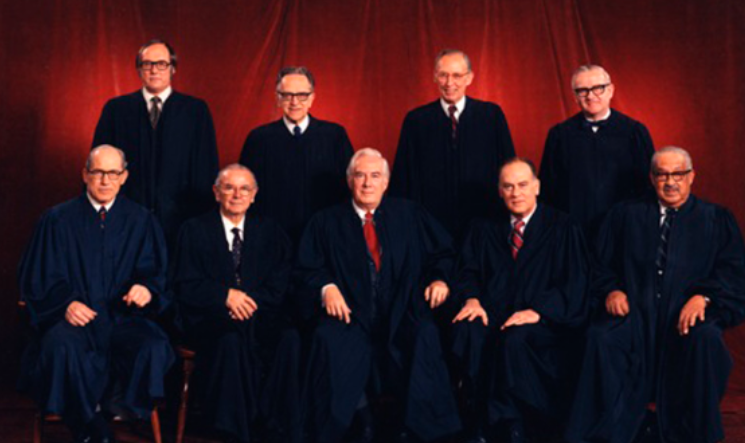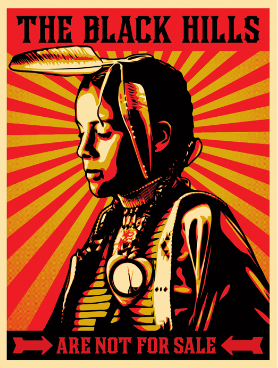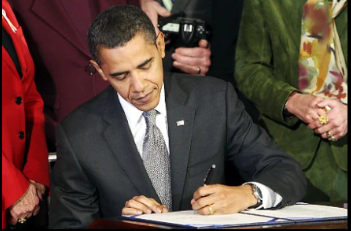
Collection of the Supreme Court. The Burger Court (1975-1981). Seated, from left to right: Justices Byron R. White and William J. Brennan, Chief Justice Warren E. Burger, and Justices Potter Stewart and Thurgood Marshall. Standing, from left to right: Justices William H. Rehnquist, Harry Blackmun, Lewis F. Powell, Jr., and John Paul Stevens. (Blackbum)

